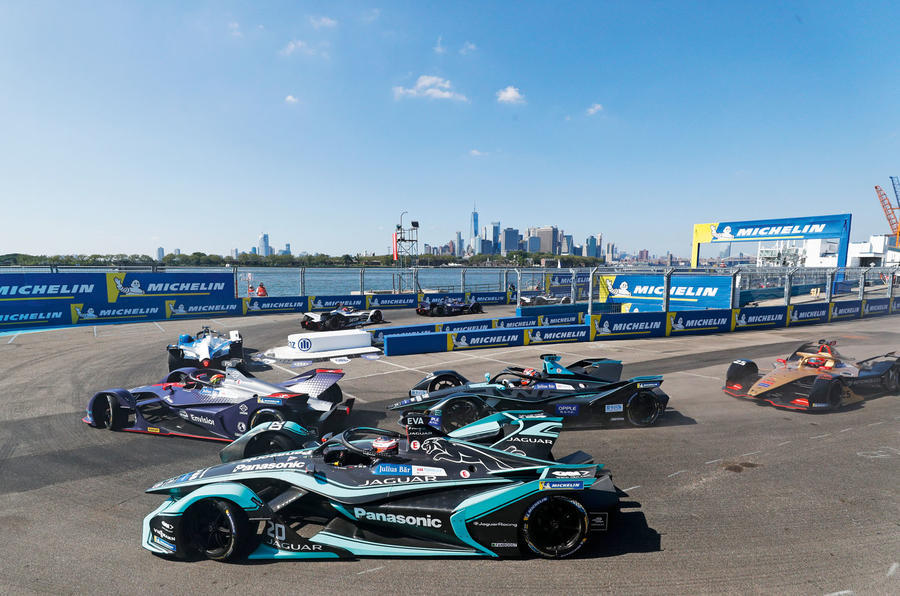It’s been a week of contrasting fortunes for pure-electric racing. Both BMW and Audi confirmed in quick succession that they are planning to leave Formula E – creating a predictable pile-on of by those predicting that this marked the peak and imminent decline of the combustion-free race series.
Then this morning, confirmation came that Lewis Hamilton’s X44 team in the forthcoming Extreme E electro off-road spin-off has signed Sébastien Loeb for next year. That’s one world champion driving for another, a level of star power it’s hard to ignore and proof of both the interest and cash that the new series has been able to raise before it even starts.
Regardless of your feelings for combustion-free motorsport, the truth is that neither Formula E nor Extreme E were created to be direct rivals to traditional racing. Series founder Alejandro Agag is a very canny operator with different priorities from the large car companies, who were always likely to come and go according to different objectives.
“It is always better to create a platform where you can survive long term with independent teams,” he told me earlier this week. “Many OEMs want to join, but normally they are temporary guests in any championships, with a few exceptions.”
Tellingly, despite the serious amount of money behind the new series and its mission to highlight climate change through racing, the only manufacturer in Extreme E is Cupra, although Agag says others are likely to join in later seasons. He also thinks that the decision to insist every team has both one male and one female driver, both sharing the same car, will help broaden its appeal well beyond the normal motorsport audience. Like Formula E, every driver is getting paid – “and paid very well” according to Agag. There aren’t many motorsport series in the world that can say that.
But Agag also knows that the automotive world is moving towards him, and that he holds what could well prove to be a hugely valuable trump card: exclusive rights to run an FIA single-seat electric championship for another 19 years. Well beyond the end date for combustion engines in most everyday cars. If senior race series want to maintain relevance to road-going technology – and take money from those fickle car companies – they are going to need to make an accommodation.





Join the debate
Add your comment
Many complain about under steer and bumper cars. Prefer Formula-e would field a car I think better suited to purpose.
Shorter wheel base reduced to ~2700 mmMore steering lock285 mm front tyre width
Make them way faster, race on proper tracks, and for proper distances.
Terrible advert for BEVs, and I have one, so it’s not a case of me being anti-EV, quite the opposite they are the near future for road cars in most circumstances.
Extreme E might be ok, rallycross type could be fast.
The future is e-sport for ecological, economical and safety reasons.
In 1900-1920's 50,000 people used to watch such sports as:
I would not be so sure that e-sports are necessarily going to be around for ever or that they will displace other sports.
I'd also make an argument that F1 could actually survive the transition to electric mobility without going to electric drive itself, I think there may actually be an argument for doing so.
EVs and Autonomous EVs in particular are not cars, in the long term they will be something quite different as they are no longer owned, frequently travel on segregated roads/tunnels and adopt completly different form factors.
Nobody pretends that horse racing or yacht racing are actually representative of how people get about, they are both doing fine long after they were replaced as a form of transport.
F1 needs to loose the idea that they are demonstrating future green technology because they aren't, the technology is being driven by industry.
A much better statement would be to simply use a carbon free fuel (don't claim that people will be using it in their cars) and bring back V8's v10's, v12's. Focus on the spectacle, the glamour, the danger.
Who cares if the manufacturers leave, they will do eventually as cars evolve away from something driven anyway.